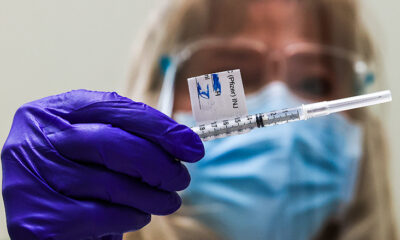The first-quarter profits of the four automakers show that Chinese electric car businesses with listings in the United States are investing more in research relative to sales than Tesla.
It’s a survival tactic in the very competitive global auto market in China. Both battery- and hybrid-powered vehicles are considered new energy vehicles, and their share of sales has increased significantly to over 40%.
According to Paul Gong, an auto analyst at UBS, many Chinese automakers already spend as much as or more on research and development as a percentage of revenue, which is a considerable rise from many years ago.“In certain cases, even in terms of absolute dollars, it has bypassed.”
Nio, the top-ranked Chinese electric car company with a U.S. listing, allocated over 29% of its income to research and development during the first three months of the year. Compared to Tesla, which had a ratio of 4.2% in the second quarter and 5.4% in the first, that is far greater. The business owned by Elon Musk is renowned for having a low ratio.
Less is known about whether the increased spending will result in sustained competitiveness.
For years, Nio has operated at a loss, and only in the last few months has it begun to receive delivery of its high-end vehicles. The firm has hosted events to showcase its battery services and other innovations in addition to car premieres in previous years. One such event was on automobile “quality” in late June.
At the ceremony, Feng Shen, the head of Nio’s quality management committee, said in Mandarin, “Everyone is talking about involution right now.” He was using a Chinese expression that’s often used to characterize intense competition, particularly in the electric vehicle sector.
Shen stated, “What companies should [compete] on is quality,” and that “there’s nothing you can say if you can’t do a good job on quality.” He outlined Nio’s comprehensive strategy for improving product quality, which focuses mostly on supply chain innovation and new technology.
Shen, an executive vice president of Nio, was previously the president of Polestar, a high-end electric vehicle company in China. Shen has also held quality management positions at Ford Motor in both China and the United States.
In September 2022, Nio inaugurated its second factory in Hefei City, which serves as a production base for other automakers. The plant employs about 2,000 people total, including 756 robots that help automate much of the production process.
Regarding worldwide production, Li stated that Nio would follow the same manufacturing standard but did not provide specific plans for other countries.
proximity of the supply chain The provincial capital of Anhui, located west of Shanghai, is Hefei. China claims the area, known as the Yangtze River Delta, is home to so many factories that a maker of new energy vehicles can locate all the parts they need in a four-hour journey.
In a statement, China’s Ministry of Industry and Information Technology said that it has collaborated with automakers and suppliers to develop hundreds of industry best-practice examples and application benchmarks for smart manufacturing.
With an emphasis on Chinese vehicles, Jing Yang, a director in Fitch Ratings’ Asia-Pacific corporate ratings office, stated that “A key competitive advantage for Chinese companies in China is actually the highly effective or efficient supply chain,”
She pointed out that this can assist Chinese electric vehicle manufacturers in reacting to consumer and market demands faster than conventional automakers.
The U.S.-listed electric vehicle company Zeekr and the Hong Kong-listed automotive behemoth Geely are based in Zhejiang province, another portion of the region.
According to Zeekr’s first-quarter earnings, R&D accounted for 13% of sales. Parent Geely has increased its research spending dramatically over the last four years, allocating at least 4% of revenue to the endeavor. However, the company did not disclose this amount in its first-quarter report.
While the business is working to develop both hardware and software for cars, Geely’s vice president of auto R&D, Ren Xiangfei, stated late last month that the latter can offer more differentiation.
Security, entertainment, and driver-assistance software are all included in cars.
Ren pointed out that because new energy cars have larger batteries than conventional fuel-powered cars, they can accommodate more of these services.
“This will introduce a new concept, the software-defined car,” he declared.
The “Aegis Short Blade Battery,” which Geely introduced last month, passed tests beyond industry standards without blowing up.
It is a competitor to BYD’s “blade battery,” which is credited with propelling the business into the lead position in EVs. The China Passenger Car Association reports that in terms of new energy vehicle sales in the first half of the year, Geely came in second and Tesla third.
According to Ren, the new battery will initially be installed in Geely cars. This will result in an approximate $1,000 rise in production costs above those of competing vehicles.
He stated that because the chemical formula for producing batteries is more developed, it is now more crucial to guarantee consistency in production. “That requires the support of a smart factory.”
Additionally, Geely unveiled the SEA electric car architecture, which it claims enables faster manufacture of various vehicle sizes.
“Vehicle platform is probably the most important thing to look at, and then consistency with their approach,” said Snow Bull Capital CEO Taylor Ogan, who is headquartered in Shenzhen.
It’s critical, he said, to observe that a business is delivering on its promises pretty quickly and that distinct teams are already at work on upcoming product releases. He stated, “I think that’s the clear differentiator.”
Automakers versus IT businesses Research expenditure to sales, or R&D intensity, is a proxy for IT innovation, but UBS’s Gong issued a warning about it.
“If they can sell more cars with better profitability, that basically means their innovative ways are probably right. Some of it may not have cool features,” Gong stated. It might involve systemic cost-cutting.” “Less fancy, but really powerful.”
Xpeng’s first-quarter R&D intensity was 20%. Li Auto’s share was just 11%, but its range-extending automobiles have outsold fully battery-electric cars by a wide margin.
In terms of total U.S. dollars, Hong Kong-listed BYD invested $1.47 billion, or 8.5% of its revenue, in research during the first quarter. That exceeds the $1.15 billion that Tesla invested in R&D during that same period.
Electric car manufacturers are trying to differentiate themselves in the future from CATL and Huawei in the software and battery markets, respectively, according to Jing Liu, a professor of accounting and finance and the director of the investment research center at the Cheung Kong Graduate School of Business.
According to Liu, it is improbable for a company to outperform both suppliers in terms of quality, which implies that automakers would ultimately find it challenging to differentiate themselves in a market where consumers may quickly move between brands.

 Technology4 weeks ago
Technology4 weeks ago
 Technology4 weeks ago
Technology4 weeks ago
 Science4 weeks ago
Science4 weeks ago
 Business4 weeks ago
Business4 weeks ago
 Business4 weeks ago
Business4 weeks ago
 Business4 weeks ago
Business4 weeks ago
 Uncategorized4 weeks ago
Uncategorized4 weeks ago
 Business3 weeks ago
Business3 weeks ago















